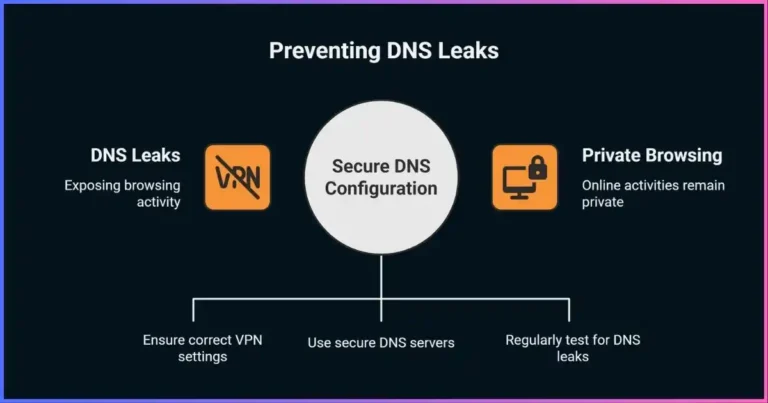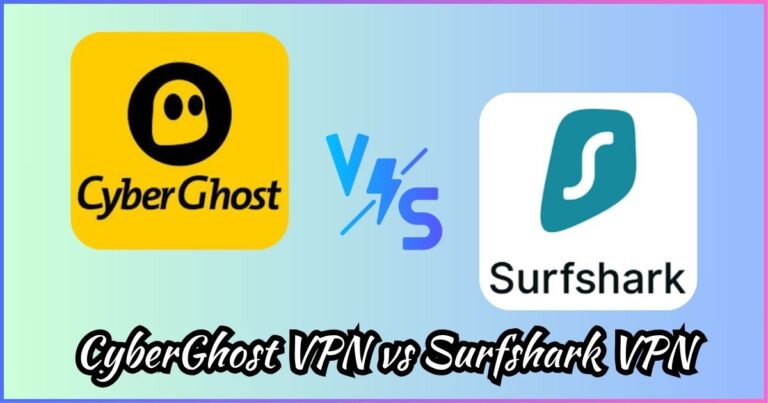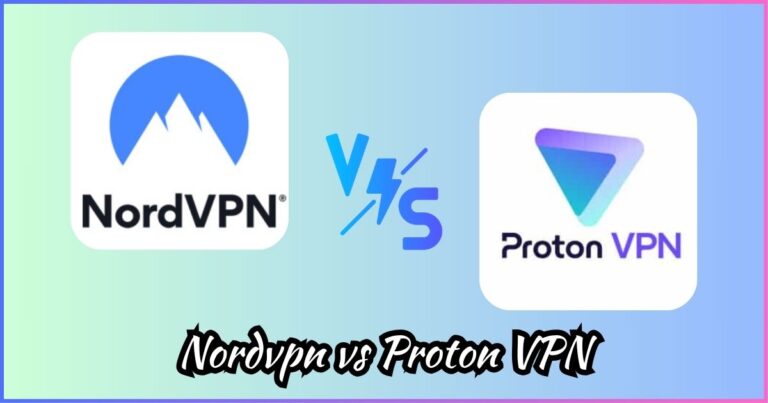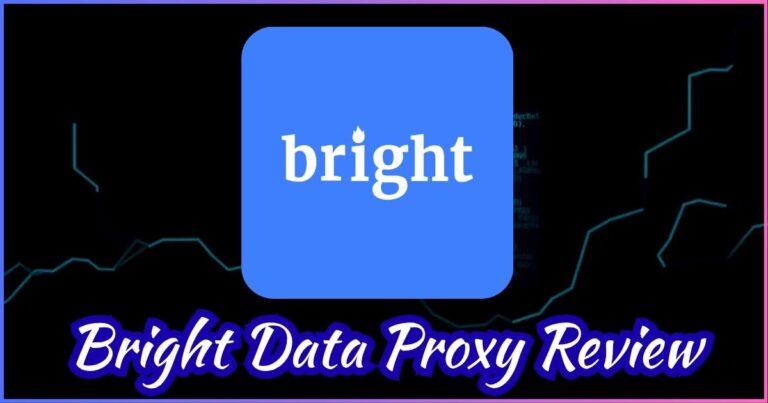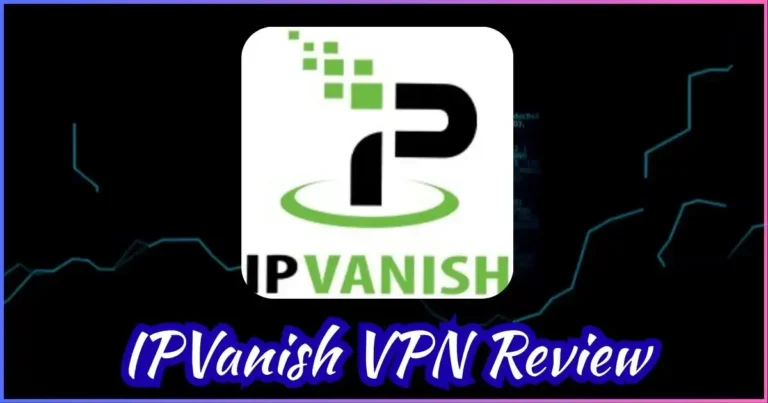VPN vs Proxy: What’s the Difference?
Your complete guide to understanding the key differences between VPN and proxy servers, helping you choose the right solution for your privacy and security needs in .
Understanding VPN vs Proxy: The Complete Guide
When it comes to online privacy and security, the choice between a VPN and a proxy server can significantly impact your digital experience. With over 1.5 billion VPN users worldwide and a growing proxy server market valued at $3.4 billion in 2023, understanding the difference between proxy and VPN solutions has become crucial for internet users seeking enhanced privacy protection.
Both VPNs and proxy servers serve as intermediaries between your device and the internet, but they operate differently and offer distinct advantages. This comprehensive guide will explore the fundamental differences, helping you make an informed decision based on your specific needs for security, speed, and functionality.
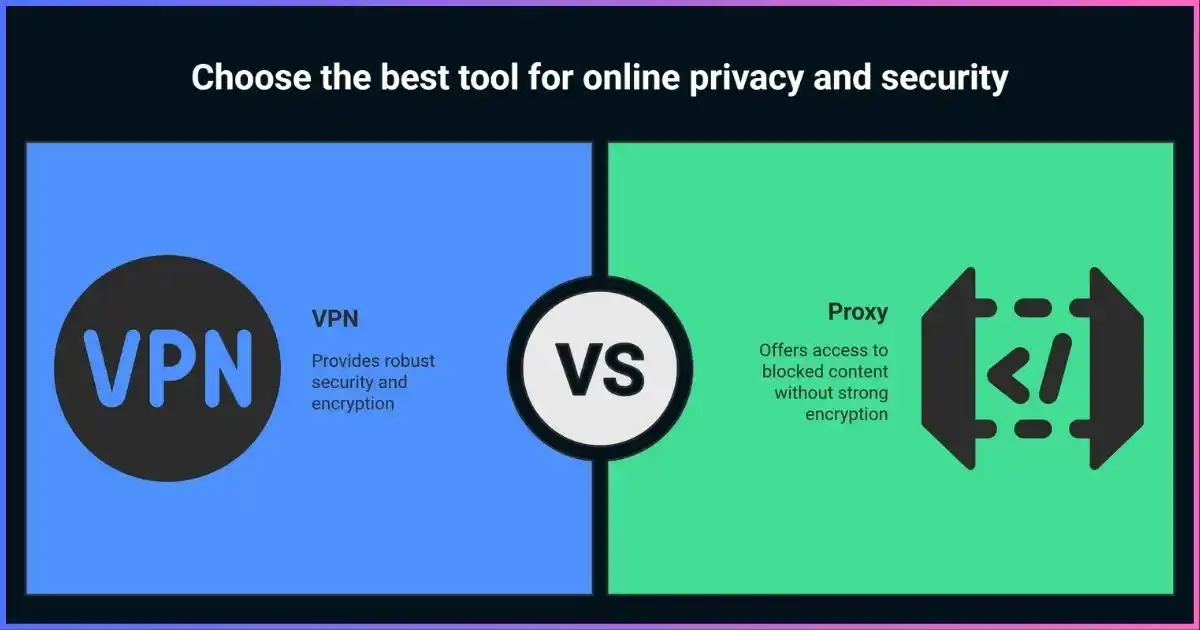
Whether you’re looking to bypass geo-restrictions, enhance your online privacy, or secure your business communications, understanding the VPN vs proxy comparison will help you choose the right tool for your digital protection strategy.
Key Takeaway
VPNs provide comprehensive encryption and privacy protection for your entire internet connection, while proxies offer faster speeds for specific applications but with limited security features.
What is a VPN?
A Virtual Private Network (VPN) creates a secure, encrypted tunnel between your device and a remote server operated by the VPN service. This technology routes all your internet traffic through this encrypted connection, effectively masking your IP address and protecting your data from potential eavesdroppers.
How VPNs Work
- Encrypts all internet traffic using advanced protocols like OpenVPN, WireGuard, or IKEv2
- Routes traffic through secure servers in different geographic locations
- Hides your real IP address from websites and online services
- Protects data on public Wi-Fi networks from potential hackers
VPN Benefits
- Bypass geo-restrictions and censorship
- Enhanced privacy and anonymity online
- Secure connection on public networks
- Remote access to company networks
Ready to Experience Premium VPN Protection?
Join millions of users who trust Surfshark for their online security and privacy needs.
Get Surfshark VPN NowWhat is a Proxy Server?
A proxy server acts as an intermediary between your device and the internet, forwarding your requests to websites and returning the responses back to you. Unlike VPNs, proxies typically don’t encrypt your traffic but focus on routing and filtering capabilities.
HTTP Proxy
Designed for web browsing, handling HTTP and HTTPS traffic. Most common type for general internet use.
SOCKS Proxy
More versatile, handling various types of traffic including email, P2P, and streaming applications.
Transparent Proxy
Operates without user configuration, often used by organizations for content filtering and monitoring.
Proxy Advantages
- Faster speeds due to no encryption overhead
- Content filtering and access control
- Often more affordable than VPN services
- Application-specific configuration
Proxy Limitations
- Limited encryption or no encryption
- Application-specific, not system-wide
- Less privacy protection
- Potential security vulnerabilities
Need High-Performance Proxy Solutions?
ProxyShare offers enterprise-grade proxy services for businesses and power users.
Explore ProxyShareKey Differences Between VPN and Proxy
Understanding the core differences between VPN and proxy technologies is essential for making the right choice for your needs. The following comparison highlights the main distinctions across various aspects.
| Feature | VPN | Proxy |
|---|---|---|
| Encryption | Military-grade encryption | Usually no encryption |
| Traffic Coverage | All internet traffic | Application-specific |
| Speed | Slightly slower due to encryption | Faster (no encryption overhead) |
| Privacy Protection | High level of privacy | Limited privacy |
| Setup Complexity | Easy with apps | Requires manual configuration |
| Cost | $3-15/month | $0.50-5/month |
Security Comparison: VPN vs Proxy
Security is often the primary concern when choosing between VPN and proxy solutions. Recent studies show that 56% of organizations have experienced cyberattacks through VPN vulnerabilities, while proxy servers face different security challenges.
VPN Security Strengths
- End-to-end encryption protects all data transmission
- Advanced authentication protocols prevent unauthorized access
- No-logs policies protect user privacy
- Kill switch prevents data leaks if connection drops
Proxy Security Limitations
- Most proxies don’t encrypt traffic, leaving data vulnerable
- Proxy operators can monitor and log user activity
- Susceptible to man-in-the-middle attacks
- Free proxies often have security vulnerabilities
Security Alert
In 2023, there were 133 VPN vulnerabilities disclosed, representing a 43% increase from 2022. However, reputable VPN providers quickly patch these issues, while proxy servers often lack the same level of security updates.
Speed & Performance Analysis
When comparing VPN vs proxy performance, speed is often a deciding factor. Proxies typically offer faster connections due to the absence of encryption overhead, while VPNs prioritize security over raw speed.
VPN Speed Factors
- Encryption/decryption adds 10-20% overhead
- Server distance affects latency
- Protocol choice impacts speed (WireGuard is fastest)
- Server load influences performance
Proxy Speed Advantages
- No encryption overhead for faster throughput
- Content caching reduces bandwidth usage
- Traffic filtering can improve performance
- Lighter resource requirements
Performance Tip
Modern VPNs with WireGuard protocol can achieve speeds within 5-10% of your baseline connection, while free proxies may actually slow down your connection due to overcrowded servers.
Market Statistics and Growth Trends
The digital privacy market is experiencing unprecedented growth. Understanding market trends helps identify which technology is gaining broader adoption and investment.
VPN Adoption Statistics
- 42% of Americans use VPNs regularly
- 93% of organizations use VPNs for business
- 328 million VPN app downloads in 2023
- 36% of users use VPNs daily
- Indonesia leads with 55% usage rate
Proxy Market Insights
- North America holds largest market share
- 250+ proxy providers in the market
- Enterprise segment driving growth
- Residential proxies gaining popularity
- Asia-Pacific fastest growing region
When to Use VPN vs Proxy
Choosing between VPN and proxy depends on your specific needs, security requirements, and use cases. Here’s a detailed breakdown of when each solution is most appropriate.
Best Use Cases for VPN
- Public Wi-Fi security (50% of users cite this reason)
- Streaming geo-blocked content (46% of users)
- Remote work and business communications
- General privacy protection (63% of users)
- Bypassing censorship in restricted countries
Best Use Cases for Proxy
- Web scraping and data collection
- Content filtering in organizations
- High-speed browsing without encryption
- SEO monitoring and competitor analysis
- Budget-conscious IP address changes
Industry-Specific Applications
E-commerce
Price monitoring, competitor analysis, inventory tracking
Marketing
Ad verification, social media management, SEO research
Security
Threat intelligence, brand protection, fraud detection
Cost Comparison and Value Analysis
Cost is a significant factor when choosing between VPN and proxy services. While proxies are generally more affordable, VPNs often provide better value for comprehensive online protection.
VPN Pricing Structure
Proxy Pricing Structure
Cost-Benefit Analysis
While free proxies may seem attractive, 60% of users report problems including slow speeds, security issues, and unreliable connections. Investing in a quality VPN or premium proxy service often provides better long-term value.
Our Recommendations
Based on our analysis of the VPN vs proxy landscape, here are our top recommendations for different use cases and requirements.
For General Users: VPN
If you’re looking for comprehensive online protection, privacy, and the ability to access geo-restricted content, a VPN is your best choice.
Why Surfshark VPN?
- • Unlimited simultaneous connections
- • 30-day money-back guarantee
- • 3200+ servers in 100+ countries
- • No-logs policy and kill switch
For Business Users: Proxy
For web scraping, data collection, and enterprise applications requiring high-speed connections, premium proxy services offer the best solution.
Why ProxyShare?
- • High-speed residential and datacenter proxies
- • 99.9% uptime guarantee
- • Global IP pool with city-level targeting
- • 24/7 technical support
Decision Matrix
Choose VPN if you need:
- Complete privacy and security for all internet activities
- Access to streaming services and geo-blocked content
- Protection on public Wi-Fi networks
- Simple setup and user-friendly applications
Choose Proxy if you need:
- High-speed connections for specific applications
- Web scraping and data collection capabilities
- Content filtering and access control
- Budget-friendly solution for IP address changes
Frequently Asked Questions
What is the main difference between VPN and proxy?
The main difference lies in security and coverage. VPNs encrypt all your internet traffic and protect your entire connection, while proxies typically only route traffic from specific applications without encryption. VPNs provide comprehensive privacy protection, whereas proxies focus on IP address masking and access control.
Which is faster: VPN or proxy?
Proxies are generally faster than VPNs because they don’t encrypt your traffic. VPNs typically add 10-20% overhead due to encryption processing. However, modern VPNs using protocols like WireGuard can achieve speeds within 5-10% of your baseline connection, while free proxies may actually slow down your connection due to server overcrowding.
Are free VPNs and proxies safe to use?
Free VPNs and proxies come with significant risks. Studies show that 60% of free VPN users report problems including slow speeds, security issues, and data logging. Free proxies often lack proper security measures and may expose your data to malicious actors. For reliable protection, premium services are recommended.
Can I use both VPN and proxy together?
Yes, you can use VPN and proxy together, but it’s rarely necessary and can significantly slow down your connection. This setup, called “proxy chaining,” adds extra layers of protection but also increases latency. For most users, a quality VPN alone provides sufficient security and privacy protection.
Which is better for streaming: VPN or proxy?
VPNs are generally better for streaming because they provide consistent IP addresses, strong encryption, and better ability to bypass geo-restrictions. About 46% of VPN users specifically use them for accessing streaming content. While proxies might be faster, they’re less reliable for streaming services that actively block proxy traffic.
Do businesses prefer VPN or proxy solutions?
It depends on the use case. 93% of organizations use VPNs for secure remote access and general business communications. However, businesses also use proxies for specific applications like web scraping, content filtering, and data collection. Many enterprises use both: VPNs for employee access and proxies for automated business processes.
How much should I expect to pay for VPN vs proxy services?
Premium VPN services typically cost $3-15 per month, while proxy services range from $0.50-5 per month for datacenter proxies and $3-15 per GB for residential proxies. While proxies appear cheaper, VPNs often provide better value for comprehensive online protection. Business solutions for both can range from $5-25 per user per month.
Ready to Choose Your Online Protection?
Whether you need comprehensive VPN protection or high-performance proxy solutions, we’ve got you covered with our top recommendations.
Conclusion
Understanding the difference between proxy and VPN technologies is crucial for making informed decisions about your online security and privacy. While both serve as intermediaries between your device and the internet, they offer distinct advantages depending on your specific needs.
VPNs excel in providing comprehensive security through encryption, making them ideal for general users seeking privacy protection, secure remote work, and access to geo-restricted content. With 1.5 billion users worldwide and growing adoption rates, VPNs have become the go-to solution for personal online protection.
Proxies, on the other hand, offer speed advantages and specialized functionality for business applications, web scraping, and content filtering. The proxy market’s projected growth to $7.2 billion by 2031 reflects their importance in enterprise and automated systems.
Ultimately, the choice between VPN vs proxy depends on your priorities: choose VPN for comprehensive security and privacy, or proxy for speed and specialized applications. For most users, a quality VPN provides the best balance of security, functionality, and ease of use.
Key Takeaways
- • VPNs provide better overall security with end-to-end encryption
- • Proxies offer faster speeds but limited privacy protection
- • VPNs are better for general users and streaming content
- • Proxies excel in business applications and data collection
- • Premium services offer better value than free alternatives
- • The choice depends on your specific security and performance needs
Disclosure: We may earn commission for purchases that are made by visitors on this site at no additional cost on your end. All information is for educational purposes and is not intended for financial advice. Read our affiliate disclosure.

